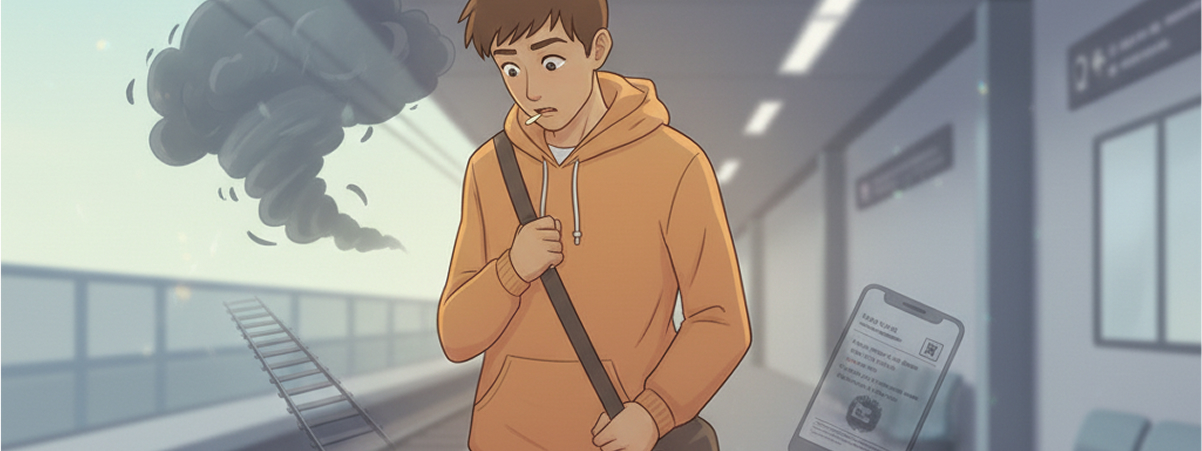"What if I fail?" "What if they don't like me?" "What if something terrible happens?" If these questions constantly run through your mind, you might be caught in the trap of negative anticipation.
This mental pattern, where you constantly imagine the worst possible scenarios, can be exhausting and paralyzing.
What is negative anticipation?
Negative anticipation is a cognitive pattern where you habitually expect and prepare for the worst possible outcomes. It's like having a mental radar constantly scanning for potential threats, even when there's no immediate danger.
While this mechanism might have evolved to protect us from real dangers, in modern life it often becomes a source of unnecessary anxiety and stress.
5 signs of negative anticipation
- Constant "what if" scenarios
Your mind automatically generates worst-case scenarios for every situation, no matter how unlikely. - Difficulty enjoying the present
You can't fully enjoy good moments because you're already worrying about what might go wrong next. - Over-preparation
You feel the need to prepare for every possible negative outcome, leading to exhaustion. - Physical symptoms of anxiety
Your body reacts to these imagined threats with real stress responses: racing heart, tense muscles, etc. - Impact on decision-making
You might avoid opportunities or experiences because of imagined negative outcomes.
Where does this pattern come from?
- Evolutionary protection
Our brains evolved to prioritize threat detection for survival, sometimes overreacting in modern contexts. - Past experiences
Previous negative experiences can make us more vigilant about potential threats. - Learned behavior
Growing up in an environment where others constantly anticipated problems. - Anxiety disorders
This pattern can be more pronounced in people with anxiety disorders.
The consequences on your life
- Chronic stress
Constant anticipation of threats keeps your body in a state of stress. - Missed opportunities
You might avoid situations that could be positive due to imagined risks. - Relationship strain
Constant worry can affect your relationships and how others perceive you. - Reduced quality of life
The inability to enjoy the present moment affects overall life satisfaction.
5 strategies to overcome negative anticipation
- Practice mindfulness
Learn to stay present and observe your thoughts without getting caught in them. - Challenge your predictions
Ask yourself: "What's the evidence for this negative outcome?" - Consider positive outcomes
Make a conscious effort to imagine positive scenarios as well. - Set a "worry time"
Designate a specific time to address your concerns, rather than letting them consume your day. - Gradual exposure
Slowly face situations you've been avoiding due to negative anticipation.
The power of tracking your anticipatory thoughts
An app like Anima can help you become aware of your negative anticipation patterns by analyzing your speech. By identifying when you're predicting catastrophes, you can begin to challenge these thoughts.
Example dialogue with Anima's AI:
User: "I'm so worried about this presentation tomorrow. What if I mess up and everyone thinks I'm incompetent?"
Anima: "I notice you're anticipating a negative outcome. What evidence do you have that you'll mess up? Have you prepared? What positive outcomes are also possible?"
Thanks to this mood tracker function, you gradually develop the ability to recognize and challenge your negative anticipations.
Key takeaways
- Negative anticipation is a protective mechanism that can become problematic
- It's possible to retrain your brain to consider positive outcomes
- Mindfulness and evidence-based thinking are powerful tools
- Small steps toward facing feared situations can build confidence
- Professional help is available if negative anticipation is severely impacting your life
And you, what situations trigger your negative anticipation? Share your experience in the comments – and discover that you're not alone in this struggle.
👉 Try Anima for free on the App Store and start transforming your thoughts today!
